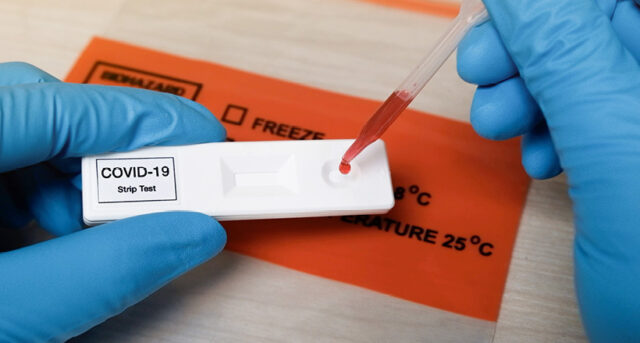As England looks to ‘live with Covid’, several measures that have been in place are about to be removed, including free Covid testing which will end on the 1st of April.
Limited symptomatic testing will remain available for a small number of at-risk groups and free symptomatic testing will remain available to social care staff.
For the rest of the population, one box of seven lateral flow tests from April is likely to set you back around £20 – and PCR tests are expected to be even more expensive.
Alan Price, CEO at BrightHR, says: “Since the self-isolation requirement was lifted at the end of February, many employers introduced a contractual isolation requirement for employees who test positive for Covid to protect vulnerable staff or clients.
“It’s up to individual employers to decide how they want a policy like this to work in practice but presumably, it would need to include regular testing. With free testing coming to an end now, this raises the question of who will pay for tests.
“It could be seen as unreasonable to put the onus on employees to pay if they are contractually required to take tests on a regular basis.
“In fact, recent case law (Augustine v Data Cars) confirmed that any expenses which are incurred in connection with employment should not cause the employee’s salary to fall below the national minimum wage rate.
“If the cost of the Covid test means the employee receives less than the national minimum wage rate, they may be able to claim underpayment.
“Options could include the employer purchasing tests in bulk for employees to use, having tests available in the workplace or asking employees to submit expense claims to reimburse the cost of purchasing their tests.
“Decisions also need to be made around how companies will pay employees who test positive. SSP rules for Covid absences will go back to the pre-pandemic allowance from day 4 of illness, rather than day one, from the 24th of March.
“The SSP Rebate Scheme is also closing, which means employers with less than 250 employees must soon foot their entire SSP bill. This could also be in addition to enhanced company sick pay, depending on contracts.
“Any policy that requires employees who test positive for Covid to isolate without pay for the first three days, is unlikely to be looked upon kindly by employees or employment tribunals. Likewise, requiring employees to pay for mandatory contractual testing, especially at a time when cost of living is going up in so many areas, is likely to be unreasonable.
“There are a lot of decisions that employers need to make right now, many of which fall within their discretion. It’s important that robust policies are in place to allow for a consistent and fair approach going forward and avoiding any misunderstanding.”
Free Covid tests scrapped: Who foots the bill when workplace testing remains mandatory?
Share this:




